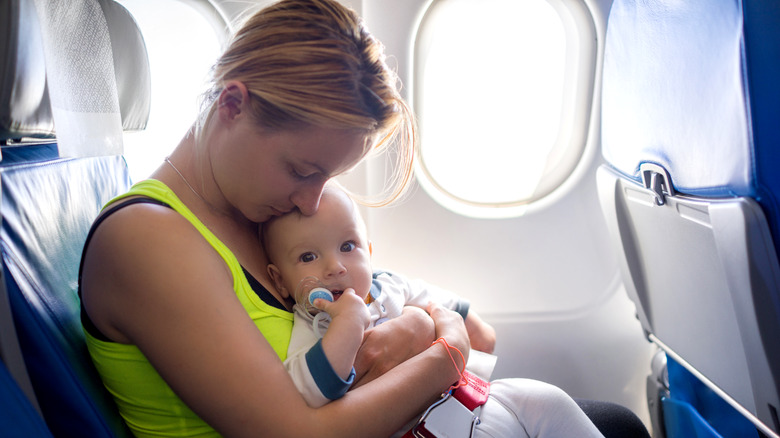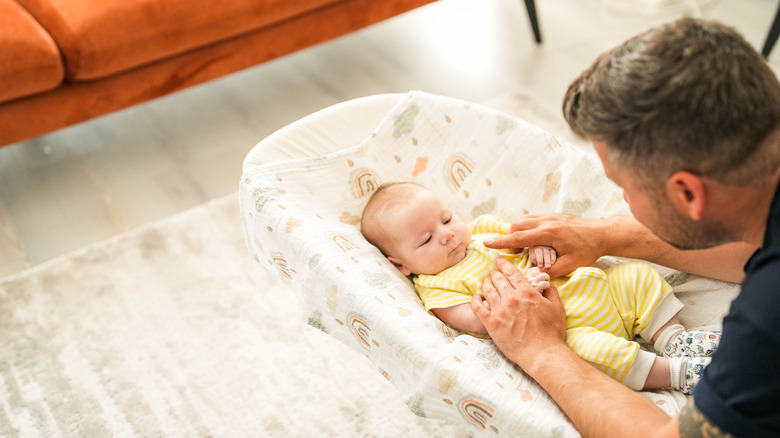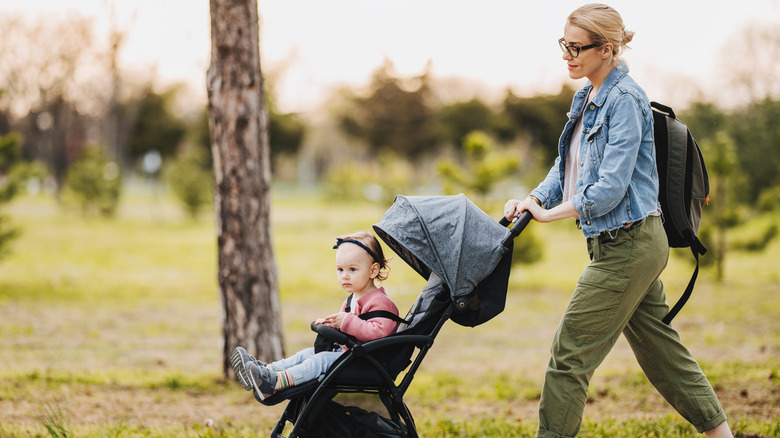The Best Way To Handle Your Baby Or Toddler's Jet Lag
Jet lag and early parenthood are kind of alike. They are two circumstances where you have to come toe to toe with sleepless nights and groggy days. With jet lag, you head off across the world and past multiple time zones to then arrive at your destination in a confused, unadjusted daze. Your body is shaken up and you don't know what is day and what is night.
Early parenthood is another circumstance where delirium becomes a mainstay. Between getting up multiple times every night and keeping a tight napping schedule — it's an exhausting uphill battle for most parents.
By bringing your little one on a trip with a big time difference, you combine these two sleepless struggles. The thought of doing so can be daunting enough to make you wonder if traveling with young children is even worth it. Not only will you be fighting jet lag, but your baby or toddler will be too. But fear not; there is a method you can follow to make the transition a wee bit easier on both of you.
Do some prep work
It's no secret that babies and toddlers are more sensitive than the rest of us. The slightest changes in their environment can either send them into a laughing fit or a pool of tears. Unfortunately, this heightened sensitivity applies to their reaction to jet lag. Julia Mallon, a certified IPMI Sleep Consultant, explained to Gulf News: "A child's biological clock is much more susceptible to jet lag because the brain is so much less mature. When traveling, your child does not adapt to the sleep receptors [or cues] as readily as an adult [can]."
Because of this, you'll want to make the time change as gentle as possible on them. One way you can ease your young one into the new time zone is to prep them a few weeks ahead of time. By slightly shifting their feeding and sleeping schedule in the direction of the upcoming time zone, you can make the final clock change a smidgen less jarring.
Stay away from sleeping medication and go the natural route
You'll always want to stick to your kid's previous routines when traveling internationally with them. While many people may get their own routine back on track with the help of antihistamines or other sleeping medications, this is not an option for babies and toddlers.
The chair of the American Academy of Pediatrics Committee on Drugs, Dr. Daniel Frattarelli, told the BBC: "It's not a good idea. When using Benadryl to sedate, you are using it for its side effects rather than its therapeutic effect. It can be dangerous — especially in children under 2. Kids have died from this." Even supplements like melatonin are cautioned against for their potentially harmful effects on healthy childhood development.
Instead of using an artificial method to get your child's sleep on track, we recommend you use some more natural sources — daylight and darkness. By getting your child exposed to the sun first thing once they wake up, you can help reset their circadian rhythm to be on par with the new time zone. In addition, you'll want to make sure to dim the lights in the evening and make their resting area as dark as possible when you want them to sleep. By doing so you can help their body pick up on the right cues for sleeping and waking.


